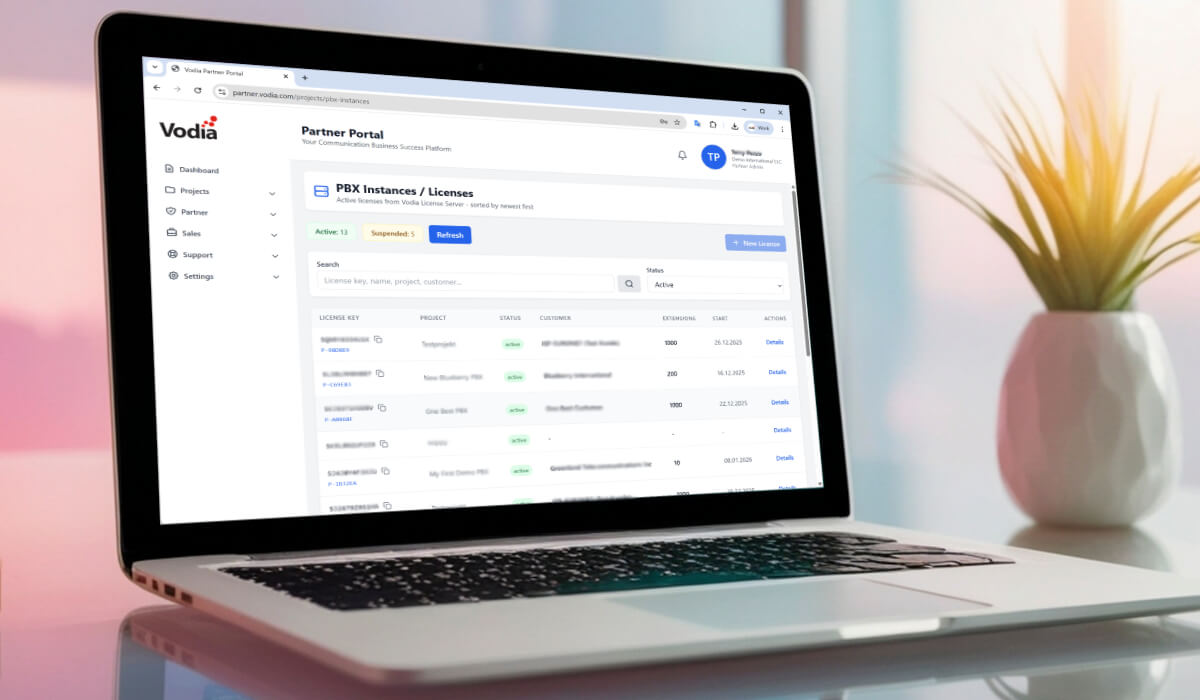Another year has gone by! We are writing at the end of 2023, and the communication space is as turbulent as it was 20 years ago.
This year, we released version 69. Though it may seem like just another version, it actually included some profound changes under the hood. We didn’t do this out of boredom - the features required for our phone system in the coming years necessitated tinkering with the underlying platform. Introducing version 69 reminded me of “The Innovator's Dilemma” by Clayton Christensen: many companies' mature products suffocate the innovations the market will eventually require. We didn’t want to fall into that trap, so, despite some headwinds, we kept improving version 69 every day. Today it has in many ways surpassed version 68 in terms of stability and features, and the “under the hood” changes are largely behind us.
An example? We released passkey support before Apple, Google and other players did. Users were largely unaware of what passkeys are and how to use them, which did cause some support efforts. Examining the dilemma, it would have been easier to just add another second factor, but users have begun to love passkeys because they are more secure and very convenient. Passwords and second factor authentication will soon be considered inconvenient and outdated. They’ll seem “retro.”
We also revisited our support for video calls. We are living in the post-covid world: hybrid work is a reality and video calls are very common. Trust will be the key to working from home, and anything that helps build it will have us all working more efficiently. Spontaneous video calls might sound Orwellian to some, but they help keep everyone honest, like you’re in the next office - they ensure employees can trust each other. We don’t want to be part of this discussion, but we want to offer this tool to those organizations that feel they need it.
Video calls and conferences with external parties still need to be scheduled, however. There were some trials with customers calling in through video, but it wasn’t a huge success. This isn’t something in which we will get involved, as there are already plenty of great solutions available.
So what’s up for 2024? On the app side, we are already tinkering with a new Android app; the current app was originally designed to share the same code base with the web user front end. Those times are over, and while the WebView in Android gives us WebRTC with JavaScript, true happiness requires going for a native mobile app. But we will keep the current app for a while - there’s no harm in having two apps on the app store, and our new Android app will take some time to mature.
On iOS we went native on day one, and we have no regrets. I have this huge airline app that takes ten seconds for every single click, and let's just say it's not my favorite; with a VoIP app, things have to happen right away, and the only way to achieve this is to stay away from layers and layers of frameworks. An app of 180 MB makes me wonder how much of the app really deals with the functionality itself. Our mobile app focuses on what a user would want to do on a mobile device. Those who want to see pie charts can just log into the web browser, mobile or desktop, and do it there. We’ll probably see video finally happening on the Vodia iOS app in 2024, but not much more.
Texting is a topic we are particularly worried about. What seems a side topic for the PBX is playing an important role in the future of the open telecommunications world. With carriers charging for MMS, it is no surprise users are moving to closed platforms where they can send images for no extra charge, even though they are using the same data connection as they would with MMS. Once users are on another platform, it's only logical they’ll eventually make calls there (also without any extra charges). I hope the RCS deal between Google and Apple isn’t too late, and that users stay on a public, open and interoperable platform. We are working with a service provider in Germany to provide SMS to landline numbers. As with passkeys, users might be confused in the beginning, but they will soon realize how much sense it makes, and that there’s no need to use a proprietary platform for the text and voice experience.
Last but not least, we need to talk about Artificial Intelligence (AI). AI will have a profound impact on office work, and the PBX isn’t immune to this. We are already using text-to-speech for content rendered by the PBX; this works smoothly without most administrators even noticing it. The other direction, speech-to-text, is picking up speed. We have seen competitors receive huge amounts of cash as investments in AI; on second look, however, it seems that same cash will have to be spent on their AI API. In other words, those competitors pay for speech-to-text with equity instead of cash. In my opinion, speech-to-text is all about cost per minute. Our plan is to keep our options open and make it possible to choose whatever provider for the transcription services. Down the road, I see the possibility that the endpoint manufacturers will open up their voice recognition engines to the apps, which will essentially drop the price per minute to zero and make voice transcription a PBX commodity feature.
At Vodia, we sincerely hope that 2023 brought you productivity and prosperity, and we're grateful for the chance to have played a role in your success. To those celebrating, Merry Christmas, and to those who don't, we wish you Happy Holidays. May these special moments be filled with warmth and may you be surrounded by family and friends. Here's to looking forward to an innovative and successful year in 2024.
.svg)






